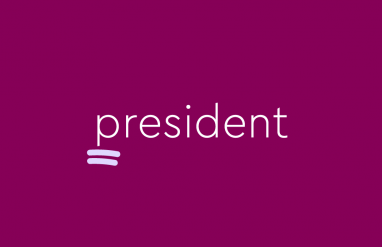Friends are always ready to help each other. Friends are also willing to lend one another support through the hard times. Most importantly, friends protect each other from the perils of … bad grammar and common English mistakes. (Or is that just us?) Truly, friendship is a beautiful thing, and this is certainly the case when it comes to nouns and pronouns.
A pronoun is a word that can substitute for a noun in a sentence. In our discussion of friendship, we used a type of pronoun called a reciprocal pronoun to say what friends do for each other. Reciprocal pronouns are dependable chums that will help you spruce up your sentences.
What is a reciprocal pronoun?
A reciprocal pronoun is a pronoun that expresses a mutual relationship. Putting it another way, reciprocal pronouns refer to a situation where someone or something performs an action on others and receives the same action in return.
For example, the sentence Andrew and Bill helped each other means that Andrew helped Bill and Bill helped Andrew. As another example, the sentence The members of the team supported one another means that every member of the team supported every other member of the team. The people who performed the actions also received them in return.
List of reciprocal pronouns
Most style guides only consider there to be two reciprocal pronouns, and both of them consist of two words. These reciprocal pronouns are:
Be cautious of each other. The words each and other can be used by themselves as indefinite pronouns. Additionally, the word each can be used as an adjective or an adverb, and the word other can be used as an adjective, adverb, noun, or even a verb. For example, the sentence Each bird in the tree looks different from each other one uses each as an adverb and other as an adjective.
What’s the difference between an adjective and adverb? Find out now.
Examples of reciprocal pronouns
Let’s look at how we use reciprocal pronouns in sentences to express mutual relationships.
Each other
- Romeo and Juliet love each other.
- The coaches spoke to each other about strategy.
- The chimpanzees shared food with each other.
One another
- The members of the board congratulated one another on a successful quarter.
- At the roast, the guests took turns making jokes about one another.
- The elephants stood close together in order to protect one another.
How to use reciprocal pronouns
There is one important thing to know about reciprocal pronouns that separates them from other pronouns. Unlike other pronouns, reciprocal pronouns typically only make grammatical sense when they are used as objects. This means that we usually do not put a reciprocal pronoun as the subject of a sentence, clause, or phrase.
✅ Correct: Barry and Mary are friends. They smiled at each other.
❌ Incorrect: Barry and Mary are friends. Each other smiled at them.
It is also important to know that reciprocal pronouns have different meanings than reflexive pronouns. These two types of pronouns usually cannot be used interchangeably because the meaning of the sentence will change. For example:
- Reciprocal pronoun: Jenny and Kenny hugged each other. (This sentence means Jenny hugged Kenny and Kenny hugged Jenny.)
- Reflexive pronoun: Jenny and Kenny hugged themselves. (This sentence means that Jenny hugged herself and Kenny hugged himself.)
It is possible to use each other and one another as possessive words:
- The students looked over each other’s homework.
- The countries agreed to respect one another’s trade routes.
Achieve correct subject-verb agreement by reviewing this guide.
Can each other and one another be used interchangeably?
You may see some style guides state that each other and one another have different meanings. A common insistence is that each other can only be used to refer to two people/things and one another can only be used to refer to more than two people/things.
In standard usage, this is not the case. In everyday writing and speech, it is perfectly fine to use each other to refer to more than two people/things and to use one another to refer to two people/things:
- Every person in the room was suspicious of each other.
- David and Adrianna used flashcards to quiz one another.
Let’s share Grammar Coach™ with each other
Take your writing to the next level with Thesaurus.com’s Grammar Coach™, which catches grammar and spelling errors and provides Thesaurus-powered synonym suggestions. Using machine learning, this unique online tool can help you spot the difference between your possessive, reflexive, and indefinite pronouns—and always use correct one!















